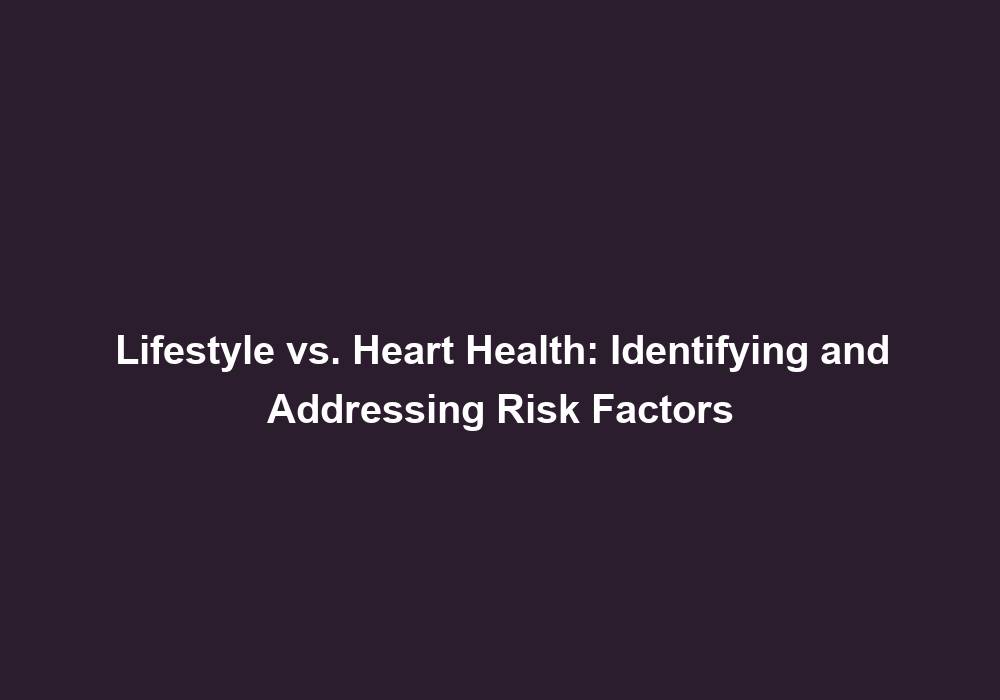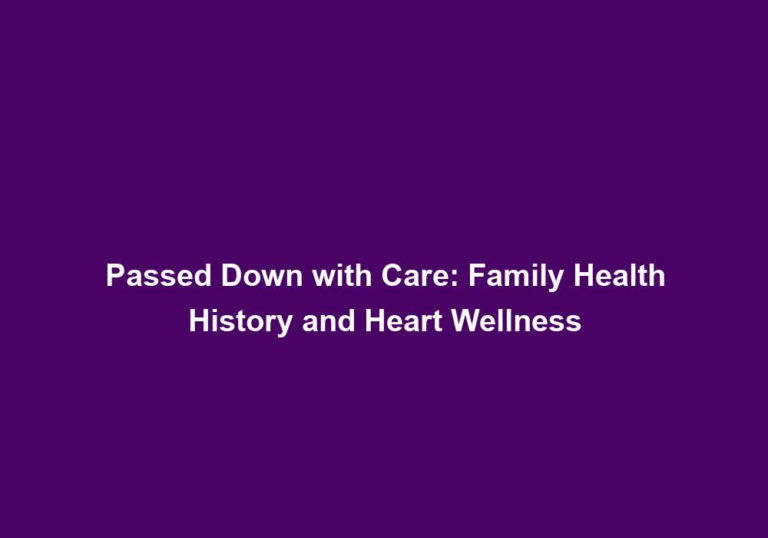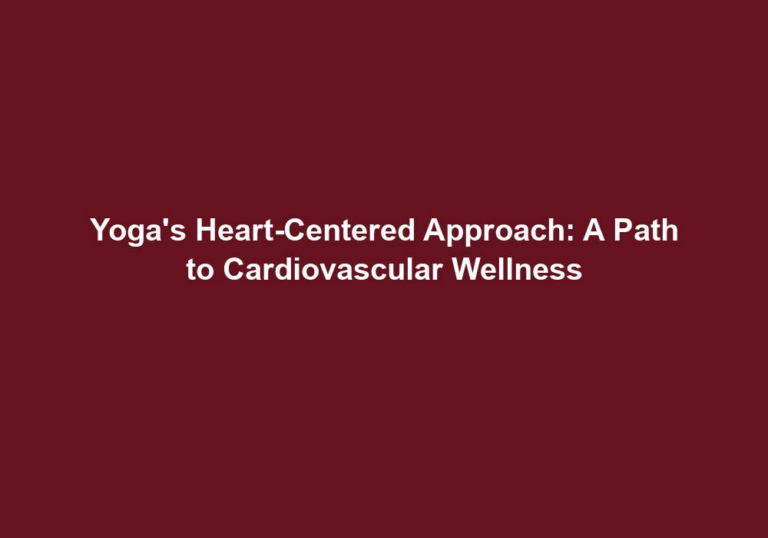Lifestyle vs. Heart Health: Identifying and Addressing Risk Factors
Heart health is an essential aspect of overall well-being and should be a top priority for everyone. Heart diseases, such as coronary artery disease, heart attacks, and strokes, are leading causes of death globally. While genetics and certain medical conditions play a role in heart health, lifestyle choices also significantly impact our cardiovascular well-being. By identifying and addressing risk factors associated with lifestyle, individuals can take proactive steps towards maintaining a healthy heart.
Understanding Risk Factors
Risk factors are elements or behaviors that increase the likelihood of developing a particular health condition. In the case of heart diseases, several risk factors are associated with lifestyle choices. By recognizing these factors, individuals can make informed decisions and adopt healthier habits to reduce their chances of developing heart-related problems.
Sedentary Lifestyle
Leading a sedentary lifestyle, characterized by minimal physical activity or prolonged periods of sitting, is a significant risk factor for heart diseases. Lack of exercise weakens the heart muscle, increases blood pressure, and leads to weight gain, all of which contribute to cardiovascular problems.
To combat a sedentary lifestyle, it is crucial to incorporate regular physical activity into your daily routine. Aim for at least 150 minutes of moderate-intensity aerobic exercise or 75 minutes of vigorous-intensity exercise per week. This can include activities such as brisk walking, jogging, swimming, or cycling. Breaking up sitting time by taking short walks or stretching every hour can also help reduce the negative effects of prolonged sitting. Finding activities you enjoy, such as dancing, playing sports, or hiking, can make exercise more fun and sustainable in the long run.
Unhealthy Diet
Poor dietary choices are closely linked to heart diseases. Consuming excessive amounts of saturated and trans fats, cholesterol, sodium, and added sugars can contribute to high blood pressure, high cholesterol levels, and obesity, all of which increase the risk of heart problems.
To maintain a heart-healthy diet, it is important to prioritize certain food groups and limit the intake of others. Emphasize a variety of fruits and vegetables as the foundation of your meals, as they are rich in essential nutrients and antioxidants. Choose whole grains, lean proteins (like fish and poultry), and plant-based sources of protein (such as beans and legumes) to provide your body with the necessary nutrients while minimizing unhealthy fats. Limit the intake of processed foods, sugary beverages, and foods high in saturated fats and sodium. Practicing portion control can also help prevent overeating and maintain a healthy weight.
Smoking and Tobacco Use
Smoking and tobacco use are extremely detrimental to heart health. Chemicals in tobacco smoke damage blood vessels, reduce oxygen supply to the heart, increase blood pressure, and promote the formation of blood clots. Secondhand smoke exposure also poses risks to cardiovascular health.
If you are a smoker or use tobacco products, quitting is the best thing you can do for your heart. Seek professional help, such as counseling or medication, to increase your chances of success. Building a support network of friends and family who can provide encouragement and assistance during the quitting process is also beneficial. Engaging in healthier activities to distract yourself from cravings, such as exercising, pursuing hobbies, or practicing relaxation techniques, can help you stay on track and overcome the challenges of quitting.
Excessive Alcohol Consumption
While moderate alcohol consumption is not necessarily harmful, excessive drinking can lead to various heart-related issues. Heavy drinking raises blood pressure, contributes to obesity, and increases the risk of cardiovascular diseases, including heart attacks and arrhythmias.
To maintain a healthy relationship with alcohol, it is important to follow the guidelines for moderate drinking. These guidelines recommend up to one drink per day for women and up to two drinks per day for men. It is essential to avoid binge drinking or excessive alcohol consumption, as it can have detrimental effects on your heart and overall health. Being mindful of your personal limits and not feeling pressured to drink beyond what you are comfortable with is key.
Stress and Mental Well-being
Chronic stress, anxiety, and depression can take a toll on heart health. Prolonged periods of stress contribute to high blood pressure, inflammation, and unhealthy coping mechanisms like overeating or smoking.
To manage stress and promote mental well-being, it is important to incorporate stress-reducing techniques into your daily routine. Deep breathing exercises, meditation, or yoga can help calm the mind and reduce stress levels. Engaging in regular physical activity, such as walking, running, or dancing, can also help alleviate stress and improve mood by releasing endorphins. If you are experiencing chronic stress or mental health issues, seeking professional help from therapists, counselors, or support groups can provide valuable guidance and support.
Conclusion
Maintaining a healthy lifestyle is vital for preventing heart diseases and promoting overall well-being. By recognizing and addressing risk factors associated with lifestyle choices, individuals can significantly reduce their chances of developing cardiovascular problems. Making positive changes in physical activity, diet, tobacco and alcohol use, and stress management will go a long way in safeguarding heart health. Remember, it is never too late to make healthier choices and prioritize your heart’s well-being.







